Ianadmin
Jan-Peter Sander named Senior Vice President of BASF’s business unit Personal Care Europe
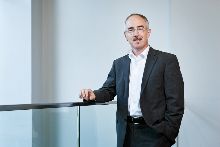 Jan-Peter Sander (53) has been named Senior Vice President of BASF’s business unit Personal Care Europe, and will take up the role on October 1, 2012. Prior to his appointment, he held the same position at BASF’ business unit Pigments and Resins Europe. In his new position, Sander will be responsible for all areas of the business, including manufacturing, supply chain, technology, marketing and sales. He will also be in charge of ensuring that BASF’s personal care business strategy continues to be successfully implemented in the future. The business unit Personal Care Europe has been established after the acquisition of Cognis to bring together BASF’s European personal care business activities and is part of BASF’s Care Chemicals division.
Jan-Peter Sander (53) has been named Senior Vice President of BASF’s business unit Personal Care Europe, and will take up the role on October 1, 2012. Prior to his appointment, he held the same position at BASF’ business unit Pigments and Resins Europe. In his new position, Sander will be responsible for all areas of the business, including manufacturing, supply chain, technology, marketing and sales. He will also be in charge of ensuring that BASF’s personal care business strategy continues to be successfully implemented in the future. The business unit Personal Care Europe has been established after the acquisition of Cognis to bring together BASF’s European personal care business activities and is part of BASF’s Care Chemicals division.
Sander, a trained import-export merchant, has been with BASF for 25 years. He joined the company as Marketing and Product Manager in 1987, and subsequently held executive-level positions at various BASF operating divisions in both Germany and abroad.
Sander will succeed Simon Medley, who has decided to leave BASF to pursue his career outside the group.
“I look forward to building on the excellent work which has been done in driving forward the unit’s strategy,” said Sander. “We will continue to establish BASF as the market-leading supplier to the personal care industry by focusing on anticipating customers’ current and future requirements and providing the market with innovation-driven solutions.”
Mondi extends its portfolio of high-white, smooth digital printing papers with DNS® color print
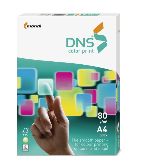 DNS® color print is the latest development in Mondi’s professional printing portfolio. The new digital colour printing paper falls within the company’s offering of smooth high-white papers for a broad spectrum of applications that demand high-impact colour saturation.
DNS® color print is the latest development in Mondi’s professional printing portfolio. The new digital colour printing paper falls within the company’s offering of smooth high-white papers for a broad spectrum of applications that demand high-impact colour saturation.
The DNS® brand by international pulp and paper maker Mondi continues to grow with the launch of DNS® color print, the company’s latest development for the fast growing digital printing market. This latest paper offers customers the high whiteness level (170 CIE) characteristic of DNS® premium and DNS® high-speed inkjet, launched in 2010 and 2011 respectively. However, DNS® color print introduces an extra smooth surface to the list of features and benefits comprising the full brand portfolio.
The smooth finish combined with the paper’s high opacity allows for full colour reproduction for duplex printing. With far-reaching potential for print applications, DNS® color print is specially engineered for digital colour printing on laser printers, copiers, and digital colour presses. Moreover, DNS® color print is produced with ColorLok® Technology, which is a class of paper additives that visibly enhance the print quality of inkjet documents while providing faster drying times.
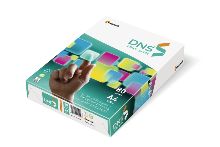 “The research and development for DNS® color print took place at Mondi Neusielder mill in Austria, where the paper is produced. Mondi Neusiedler has been in the paper making business for more than 200 years and has led the way in developing papers for digital printing for more than 20 years. Its reputation for high quality and innovation is well-earned and recognised by professionals in the paper industry,” said Johannes Klumpp, Marketing and Sales Director for Mondi Uncoated Fine Paper.
“The research and development for DNS® color print took place at Mondi Neusielder mill in Austria, where the paper is produced. Mondi Neusiedler has been in the paper making business for more than 200 years and has led the way in developing papers for digital printing for more than 20 years. Its reputation for high quality and innovation is well-earned and recognised by professionals in the paper industry,” said Johannes Klumpp, Marketing and Sales Director for Mondi Uncoated Fine Paper.
With a range of grammages from 80-300 g/m2 in A4, A3 (LG/SG) and SRA3 formats, versatility is a prime benefit for printers handling diverse applications from marketing collateral to invitations to business cards. DNS® color print is also suitable for preprint applications such as letterhead and office stationery.
DNS® color print is part of Mondi’s Green Range of sustainably produced papers that fulfil the leading environmental and social guidelines. It is FSC® certified and was awarded the EU Ecolabel as a product that is deemed to have a lesser impact on the environment than other similar products.
All Mondi Uncoated Fine Paper mills are certified FSC®, PEFC™, ISO 9001 (quality management) and ISO 14001 (environmental management system).
Mondi is an international packaging and paper Group, with production operations across 28 countries and revenues of €5.7 billion in 2011. The Group's key operations are located in central Europe, Russia and South Africa and as at the end of 2011, Mondi employed 23,400 people.
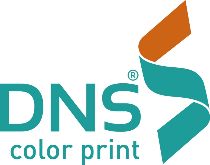 Mondi Group is fully integrated across the paper and packaging process, from the growing of wood and the manufacture of pulp and paper (including recycled paper), to the conversion of packaging papers into corrugated packaging, industrial bags and coatings.
Mondi Group is fully integrated across the paper and packaging process, from the growing of wood and the manufacture of pulp and paper (including recycled paper), to the conversion of packaging papers into corrugated packaging, industrial bags and coatings.
The Group is principally involved in the manufacture of packaging paper, converted packaging products and uncoated fine paper (UFP).
Mondi Group has a dual listed company structure, with a primary listing on the JSE Limited for Mondi Limited under the ticker code MND and a premium listing on the London Stock Exchange for Mondi plc, under the ticker code MNDI. The Group has been recognised for its sustainability through its inclusion in the FTSE4Good Global, European and UK Index Series (since 2008) and the JSE's Socially Responsible Investment (SRI) Index since 2007. The Group was also included in the FTSE350 Carbon Disclosure Leadership Index for the second year.
Metsä Group’s tissue and cooking paper business area to begin statutory negotiations in Finland
 Metsä Tissue, Metsä Group’s tissue and cooking paper business, is to commence statutory negotiations in its Finnish units. The negotiations are part of company-wide organisational restructuring targeted to improve profitability.
Metsä Tissue, Metsä Group’s tissue and cooking paper business, is to commence statutory negotiations in its Finnish units. The negotiations are part of company-wide organisational restructuring targeted to improve profitability.
The statutory negotiations announced today will concern white-collar personnel in Finland, excluding frontline sales teams. Roughly 150 employees will be involved in the process and themaximum headcount reduction is not expected to exceed 40. Metsä Tissue’s Finnish offices are based in Espoo and Mänttä.
“Increasing competition and continuous tightening of EU regulation pose additional challenges for Metsä Tissue. Additionally, the Finnish government’s stricter national adaptation of EU directives concerning areas such as waste taxation and landfill regulations is a major threat to our competitiveness. By restructuring and reorganising our operations, we aim to secure our future competitiveness on the growing tissue and cooking paper market,” says Metsä Tissue’s CEO Mika Joukio.
Walki Group’s Pioneering Passive RFID Antenna Manufacturing Technology Holds Tremendous Market Potential
The Walki 4E technology can bring a significant and welcome change to the RFID market
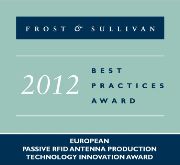 Based on its recent research on the passive radio frequency identification (RFID) antenna production market, Frost & Sullivan presents Walki Group with the 2012 European Frost & Sullivan Award for Technology Innovation for developing a unique manufacturing technology that lowers material costs and speeds up manufacturing process in an environment friendly manner. The Walki 4E technology involves a dry process of laser patterning paper and aluminium laminate, which drastically reduces the cost factor involved in RFID manufacturing.
Based on its recent research on the passive radio frequency identification (RFID) antenna production market, Frost & Sullivan presents Walki Group with the 2012 European Frost & Sullivan Award for Technology Innovation for developing a unique manufacturing technology that lowers material costs and speeds up manufacturing process in an environment friendly manner. The Walki 4E technology involves a dry process of laser patterning paper and aluminium laminate, which drastically reduces the cost factor involved in RFID manufacturing.
The conventional method deployed by competitors produces RFID antennas through wet etching using wet chemicals. However, Walki Group’s pioneering technology is characterized by computer to antenna manufacturing and laser cutting of the antenna. The company uses paper – considered to be one of the best candidates for organic substrates for RFID/sensing applications – as a substrate for its RFID antenna tags. After the laser cuts out patterns from the laminate made of aluminum and paper substrate, the aluminum residue is recycled.
The Walki 4E technology is ten times faster than the benchmark set by its competitors in manufacturing. The digital process also allows each antenna to be different, resulting in very short response time and a considerably higher development cycle. Further, the laser to antenna manufacturing creates accurate geometries. Having good dimensional stability increases repeatability, resulting in increased process yield and production speed.
The computer to antenna production enables small, extremely accurate pattern attainable with laser technology. Walki has a very tight integration with the IC supply chain enabling them to develop small integrated chips (ICs). Having smaller components can help in integrating with even compact devices and gives more flexibility on the design options. The highest frequency obtainable with Walki’s antennas is 5.8 GHz, which in effect covers the whole range from low frequency (LF), high frequency (HF), ultra high frequency (UHF), and microwave.
“Walki Group’s competitors lack the technology advantage to produce RFID tags at such a low cost and high volume platform,” notes Frost & Sullivan Industry Analyst Saju John Mathew. ”The company’s unique technology, coupled with its global production and distribution network address every need in mainstream RFID applications with major price reductions.”
RFID can have a huge impact in near field communication (NFC) and barcodes, which put together, can be a highly lucrative market. Walki 4E technology can greatly facilitate penetration of NFC antennas into the market on a large scale, primarily because of the low cost. The unique dry process technique enables combining fiber, polymer, plastics, and creating the substrate of the client’s choice with up to nine different polymers. This variety of options – not available with Walki Group’s competitors – can enable other exploratory applications, where the polymers best fitting the need can be chosen.”
Apart from RFID tag antennas, this technology can greatly benefit other applications such as photovoltaics, flexible batteries, flexible circuit boards, heat elements, and mobile handset antennas. Using Walki 4E technology, Walki Group has developed the Walki Pantenna, which is the first UHF RFID antenna that offers extensive possibilities for converting. It can be made of paper or even fabric and printed directly on a label or a hang tag. This easy conversion allows for high volumes delivering extremely efficient and economical production to the end users in applications such as labels, hang tags, and single trip tickets.
Walki 4E technology is an environment friendly process, as there are no chemicals used during its manufacture, and the process residue (metallic aluminum) is directly recyclable. The overall dry, low cost manufacturing process can encourage deploying the technology in markets previously unexplored.
“The low-cost parameter being manifold with Walki Group’s technology is definitely a boost to end users, especially in single trip ticketing, tags for library books, ready size labelling and apparel item level tracking,” says Mathew. “The Walki Group is able to rapidly provide any number of customised tag antennae, online quality control, and a high level of interactivity that ensures customer satisfaction.”
The potential for RFID in existing and emerging applications and replacement for barcodes is quite high; the market potential can be enhanced with wide scale adoption that is enabled by Walki’s customer-centric technology. The company, which employs over 1000 people, already has a combined annual net sale exceeding $398 million with production facilities in Finland, Germany, the Netherlands, Poland, UK, Russia and China, which enables it to easily penetrate major geographies around the world.
Based on all these factors, Frost & Sullivan is pleased to present Walki Group with the 2012 Frost & Sullivan Technology Innovation Award. Each year, Frost & Sullivan presents this award to a company that has demonstrated uniqueness in developing a technology, which significantly impacts both the functionality and the customer value of new products and applications. The award lauds the relevance of the innovation to the industry.
Frost & Sullivan’s Best Practices Awards recognize companies in a variety of regional and global markets for demonstrating outstanding achievement and superior performance in areas such as leadership, technological innovation, customer service, and strategic product development. Industry analysts compare market participants and measure performance through in-depth interviews, analysis, and extensive secondary research in order to identify best practices in the industry.
ANDRITZ to supply stock preparation systems for Fujian Liansheng Paper, China
 International technology Group ANDRITZ has received an order to supply stock preparation systems for the new board machine to Fujian Liansheng Paper Co. Ltd., located in Longhai, Zhangzhou City, Fujian Province, China. Start-up is scheduled for end of 2013.
International technology Group ANDRITZ has received an order to supply stock preparation systems for the new board machine to Fujian Liansheng Paper Co. Ltd., located in Longhai, Zhangzhou City, Fujian Province, China. Start-up is scheduled for end of 2013.
The scope of supply for this new board machine which will produce 600,000 t/a coated board and white top test liner comprises:
- 250 t/d virgin fiber line (Northern Bleached Kraft Pulp/Leaf Bleached Kraft Pulp, Northern Unbleached Kraft Pulp) for the top ply,
- 350 t/d OMG/MOW/old books line (Old Magazines/Mixed Office Waste) for the under top ply,
- components for the 1,300 t/d mixed waste line for the filler ply,
- 260 t/d ONP line (Old Newsprint Pulp) for the back ply,
- sludge dewatering system and reject treatment components for the recycled fiber lines,
- four-layer paper machine approach system,
- save-all disc filter,
- under the machine pulper system (all in all eight pulping/slushing units),
- basic engineering, supervision of erection, commissioning, start-up and training as well as spare and wear part packages for the entire equipment supply.
With this important order, ANDRITZ PULP & PAPER is once again confirming its position as leading stock preparation system and equipment supplier in China.
Metso has obtained EUR 400 million of new long-term funding
Metso Corporation issues an EUR 400 million 7-year Eurobond under the company’s EMTN (Euro Medium Term Note) program. The notes carry a fixed coupon of 2.75 percent. The issue was substantially oversubscribed with around EUR 1.5 billion of orders, and the bond was allocated to about 170 investors. An application will be made for a listing of the notes on the Luxembourg Stock Exchange, where the EMTN program is currently listed.
The new funding will extend Metso’s maturity profile and the funds will be used primarily for general corporate purposes. In addition to the new bond, Metso has issued private placements totaling EUR 100 million during 2012.
Citigroup, Danske Bank, Nordea Markets, and SEB acted as Joint Bookrunners for the transaction.
Ahlstrom's financial information in 2013
Ahlstrom will publish its financial information in 2013 as follows:
Report Publication date
Financial statements bulletin 2012 Thursday, January 31
Interim report January - March Thursday, April 25
Interim report January - June Wednesday, August 7
Interim report January - September Thursday, October 24
The annual report for 2012 will be available in a PDF format on Ahlstrom's web site on the week starting February 25, 2013.
Ahlstrom's Annual General Meeting will be held on Wednesday, March 27, 2013 at 1 p.m. at the Finlandia Hall (Mannerheimintie 13 e, Helsinki).
BASF increases prices for polymer dispersions, polymer powders and acrylic resins
With effect from October 01, 2012, or as contracts allow, BASF will increase prices in Europe, Africa and Western Asia for polymer dispersions, redispersible powders and acrylic resins by 50 - 100 Euro per metric ton. The price increase is necessary due to the significant rise in the cost of raw materials.
The products affected by the price increase are used as polymers for architectural coatings and construction chemicals as well as in the coatings, printing and packaging industries.
About BASF
BASF is the world’s leading chemical company: The Chemical Company. Its portfolio ranges from chemicals, plastics, performance products and crop protection products to oil and gas. We combine economic success, social responsibility and environmental protection. Through science and innovation we enable our customers in almost all industries to meet the current and future needs of society. Our products and system solutions contribute to conserving resources, ensuring healthy food and nutrition and helping to improve the quality of life. We have summed up this contribution in our corporate purpose: We create chemistry for a sustainable future. BASF posted sales of about €73.5 billion in 2011 and had more than 111,000 employees as of the end of the year. BASF shares are traded on the stock exchanges in Frankfurt (BAS), London (BFA) and Zurich (AN). Further information on BASF is available on the Internet at www.basf.com.
Chinese producer C&S Paper continues to invest in Toscotec Tissue Machines
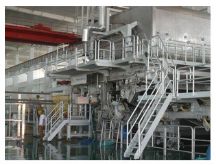 One of the major Chinese tissue producers, C&S Paper, has signed up Toscotec to supply other two new tissue machines with a combined capacity of 58,000 tpy at its mills in China.
One of the major Chinese tissue producers, C&S Paper, has signed up Toscotec to supply other two new tissue machines with a combined capacity of 58,000 tpy at its mills in China.
The deal was struck after C&S Paper brought on line another tissue PM, the third one in the last two years, provided by the Italian supplier at its mill in Tangshan city in China's, during the summer.
The new Toscotec machines will be installed in Chengdu mill located in Sichuan. One of the machine (AHEAD-1.5M) will have a trim width of 3550 mm, speed of 1650 mpm, steam heated hood, steel yankee dryer TT SYD-16FT and capacity of some 32.000 tpy. The second one (AHEAD-1.5S) will have a trim width of 2850 mm, speed of 1700 mpm, gas fired hood, steel yankee dryer TT SYD-12FT and capacity of some 27.000 tpy.
Toscotec’s scope of supply for both machines includes crescent former TM, machine auxiliaries, hood and dust removal system (provided by Toscotec associated Milltech), electrification and control system.
The two PMs will come online in second half of 2013, if everything goes smoothly.
C&S Paper owns six mills in China operating 80 machines, including the new Toscotec units at the Jiangmen and Tangshan sites with a total tissue capacity of approx. 350,000 tpy at the end of 2012. Three more Toscotec units will come on stream in the next months.
With these new repeated orders for one of the most important tissue producer in the Chinese developing market, Toscotec re-state its success in providing state of the art projects with a wide variety of different drying solutions for the tissue industry worldwide。
RockTenn Amends and Extends Bank Revolving Credit and Term Loan Facility
RockTenn announced today that it has entered into an Amended and Restated Credit Agreement in the approximate amount of $2.7 billion, comprised of a $1.475 billion revolving credit facility and a $1.22 billion term loan facility. The facility matures on September 27, 2017.
Annual interest expense and fee savings of approximately $4.5 million are expected based on the current outstanding balances under our revolving credit and term loan facility. The agreement provides for the currently effective maximum leverage ratio of 3.75 times to be effective at our option through September 30, 2013. Prior to the amendment, the credit agreement, which is unsecured, provided for a springing lien on subsidiary stock upon the occurrence of certain credit related events. That provision was eliminated by the amendment.
“Our Amended and Restated Credit Agreement extends the maturity of our bank facility to five years and provides additional liquidity at a reduced cost compared to our current bank facility. When combined with the $1.45 billion in notes issued for terms of 7 to 10.5 years during 2012, our strong balance sheet continues to provide significant financial flexibility to implement our business strategy,” said Jim Rubright, Chairman and Chief Executive Officer of RockTenn.
Source: RockTenn
